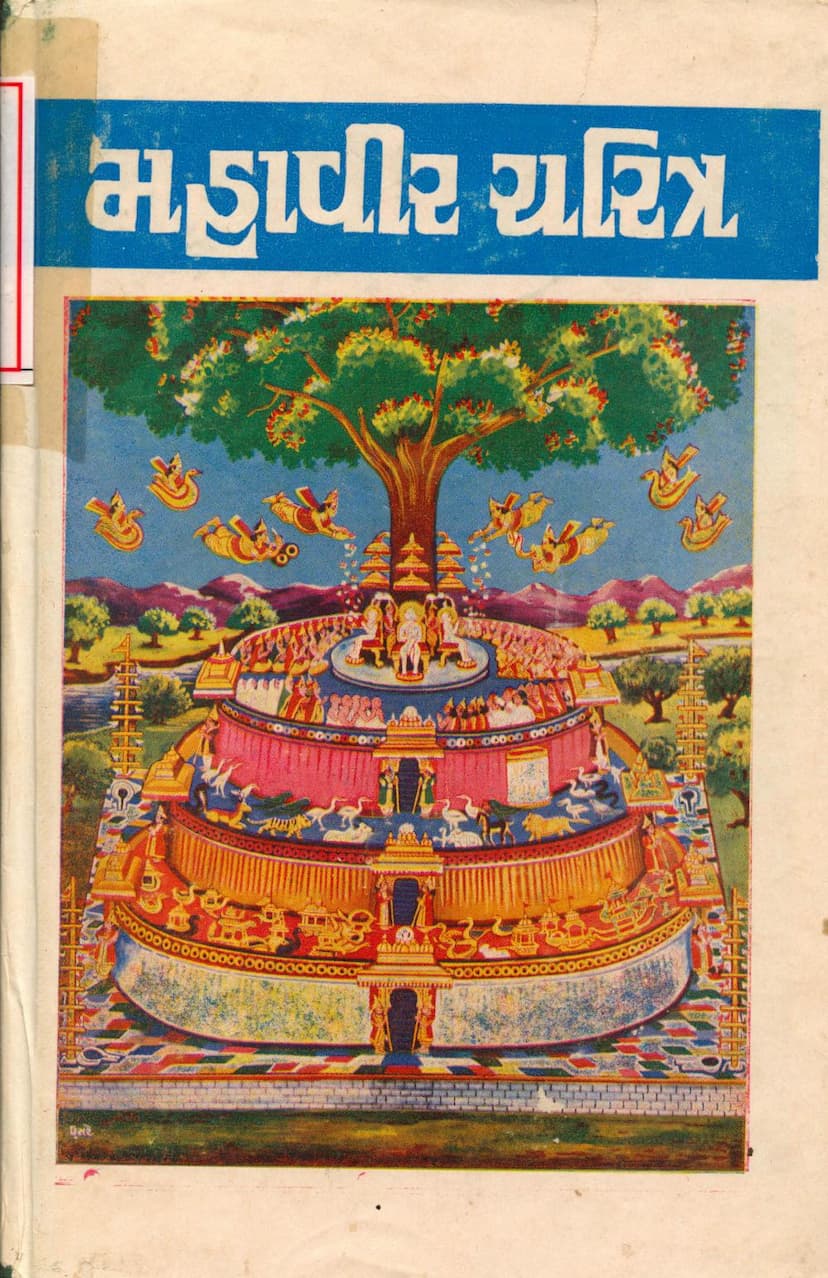Mahavir Charitra
Added to library: September 2, 2025

Summary
Here's a comprehensive summary of the Jain text "Mahavir Charitra" by Chimanbhai B Sheth, based on the provided pages:
The book "Mahavir Charitra" (Life of Mahavir) by Professor Chimanbhai B. Sheth, M.A., B.T., LL.B., is presented as a detailed biography of the 24th Jain Tirthankar, Lord Mahavir Swami. The publication is a collaborative effort, with Professor Sheth contributing his work without remuneration and Shri Kritikarbhai Chunilal Shah undertaking the financial responsibility. The book is dedicated to the memory of Shri Nareshchandra Mansukhlal and Smt. Padmaben Nareshchandra, acknowledging their noble qualities and contributions to religious activities.
Core Content and Focus:
The book meticulously chronicles the life of Lord Mahavir Swami, drawing primarily from Jain scriptures and the works of Acharya Hemchandrasuri. It covers his various lives before his final birth as Mahavir, highlighting the journey of the soul towards enlightenment. The narrative emphasizes Mahavir's exemplary conduct, his adherence to Jain principles, and his impact on society.
Key Themes and Narratives:
-
Past Lives (Pūrva Bhava): The initial chapters detail Mahavir's previous births, including:
- Naysār: A village chief who attained right faith (Samakit) through his interaction with Jain monks.
- Marichi: The son of Chakravarti Bharat, who despite being destined to become a Tirthankar, fell prey to pride (mad) and adopted a heretical path, thus binding negative karma.
- Vishvabhuti: A prince who renounced worldly life and attained spiritual growth.
- Tripṛṣṭha Vasudev: A powerful warrior who achieved great victories but also committed actions leading to a fall into lower realms.
- Priyāmitra Chakravarti: A righteous ruler who eventually took to asceticism.
- Nandan Rajputra: A pious prince who accumulated virtues for his final birth.
- These narratives illustrate the soul's long journey of spiritual evolution, the consequences of actions, and the eventual attainment of Tirthankar status through the accumulation of merit.
-
Birth and Childhood: The text describes Mahavir's divine conception, the auspicious fourteen dreams of his mother Trishala Devi (initially received by Devananda and then transferred), his birth in the Kshatriya lineage, and the significant event of his naming as Vardhaman due to the increase in prosperity during his gestation. His childhood is portrayed as one of innate courage and fearlessness.
-
Asceticism and Renunciation: The book details Mahavir's decision to renounce the world after his parents' passing, his acceptance of his elder brother Nandivardhan's request to delay his renunciation by two years, and his subsequent life of austerity, including strict adherence to Brahmacharya and consumption of pure food (Prashuk Ahar).
-
Life as an Ascetic and Trials (Upsarga): A significant portion of the book is dedicated to Mahavir's life as an ascetic, enduring immense hardships and temptations (Upsarga) from various entities, including:
- Indra and other Devas: Who tested him with various means.
- Sūladhāri Yaksha: Who inflicted physical pain and mental distress.
- Chanda Kausika: A venomous serpent that Mahavir pacified and converted.
- Gosala Mankhaliputra: His contemporary and rival, who often created obstacles and spread misinformation.
- Sangam Deva: A powerful demon who subjected Mahavir to twenty severe trials, including physical torment, illusions, and temptations, all of which Mahavir bore with equanimity.
- The text highlights Mahavir's unwavering composure, tolerance, and compassion even in the face of extreme suffering and animosity.
-
Attainment of Kevala Jnana and Preaching: The book describes Mahavir's ultimate attainment of omniscience (Kevala Jnana) at the age of forty-two. It then details the establishment of the Chaturvidh Sangh (four-fold community: monks, nuns, laymen, and laywomen) and the core teachings of Jainism, including Ahimsa (non-violence), Anekantavada (non-absolutism), Aparigraha (non-possession), and Brahmacharya (celibacy). His discourses emphasized truthfulness, ethical conduct, and the path to liberation.
-
Key Disciples and Followers: The text mentions prominent disciples like Gautam Swami (who became the chief Ganadhara), Indrabhuti, Agnibhuti, Vayubhuti, and others who achieved spiritual realization. It also highlights the devotion of lay followers like Dhanṇa, Shalibhadra, Anand Shravak, Kamdev, and the sacrifices of women like Chandanbala, Mrigavati, and Jayanti.
-
Social and Ethical Teachings: The book underscores Mahavir's role as a social reformer, advocating for equality, condemning the caste system, and emphasizing the importance of compassion and righteousness. His teachings are presented as universal principles for individual well-being and societal harmony.
-
Historical Context: The review by "Mumbai Samachar" and "Gauhati University Journal" indicates that Professor Sheth's work provides valuable insights into the history and culture of Gujarat during the period of Jainism's prominence, highlighting the patronage of rulers and the significant contributions of Jains to society.
Literary Style and Approach:
The book is written in Gujarati and is praised for its comprehensive and well-documented narrative. It is noted for its lucid and balanced treatment of the subject matter. The author's extensive research, referencing Sanskrit, Prakrit, and Old Gujarati literature, is acknowledged.
Overall Significance:
"Mahavir Charitra" serves as a foundational text for understanding the life and teachings of Lord Mahavir. It is intended to inspire readers to follow his path of righteousness, non-violence, and self-discipline, ultimately leading to spiritual liberation. The book is deemed valuable not only for students of Jainism but also for those interested in the broader history and culture of ancient India.